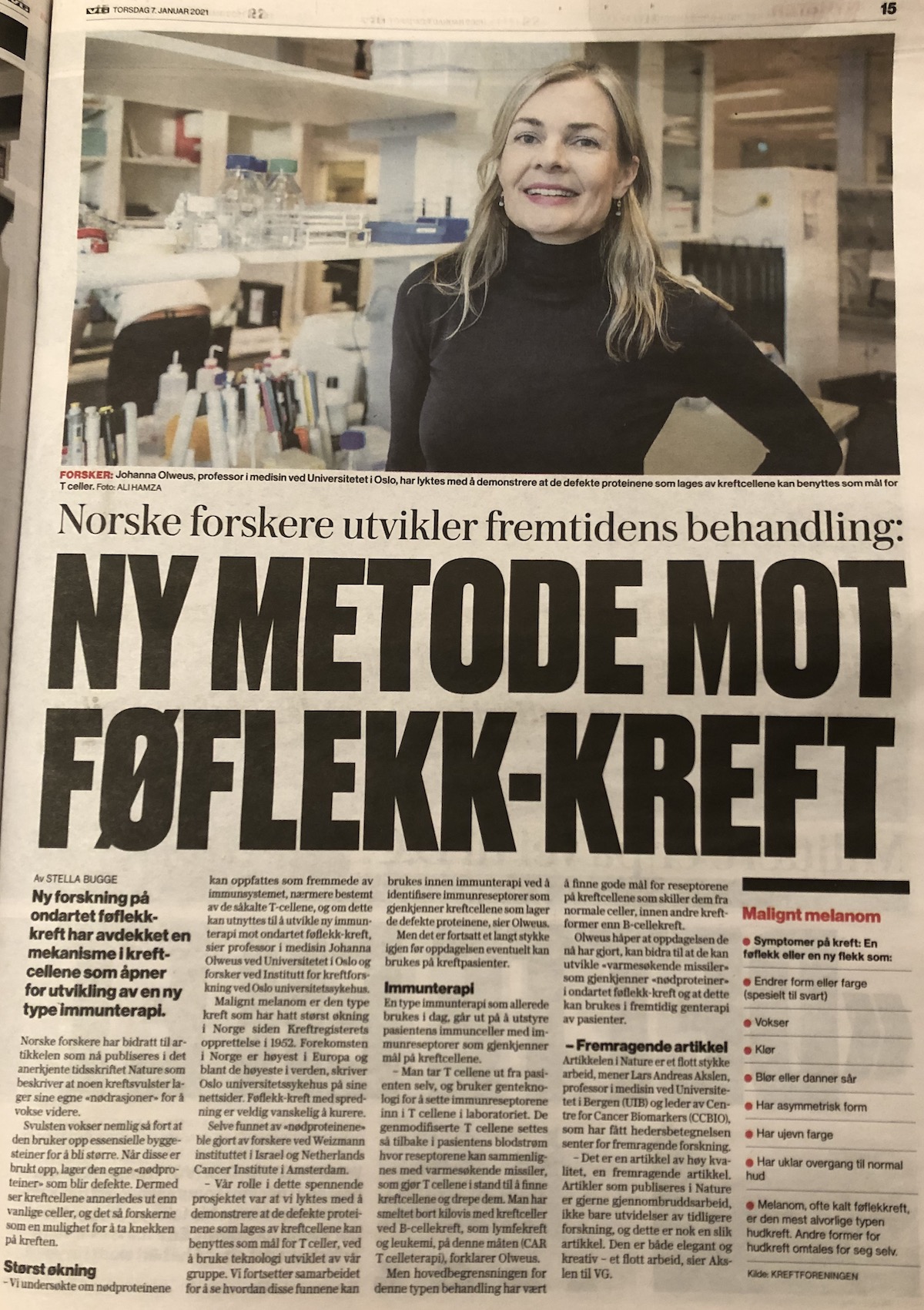In Nature: The Olweus lab reports that translational mistakes in cancer can be targets of immunotherapy

Cancers like melanoma are hard to treat, not least because of lack of specific therapeutic targets that distinguish them from normal cells. A combined research effort by scientists at the Weizmann Institute of Science in Israel and researchers at the Netherlands Cancer Institute in Amsterdam and Oslo University Hospital/University of Oslo, Norway, shows exactly how tumors can overcome hurdles that occur when starved for certain building blocks used in protein synthesis. While such emergency programs might favor continued growth and aggressive behavior by the tumor, the scientists demonstrated that it can also give rise to new targets for the immune system. Specifically, the scientists demonstrated that in a situation of starvation, the tumors produced defective proteins that could be efficiently recognized by immune cells, called T cells. These results could be exploited for the development of new immunotherapies, as they unravel a completely new class of therapeutic targets that cannot be detected at the genomic (DNA) level. The study was published in Nature December 17th.
"Our role in this exciting collaboration was to demonstrate that the defective proteins produced by the cancer cells can be targeted by T cells, using technology developed by our group. We are continuing the collaboration to further explore the possibility for how these findings can be exploited in cancer immunotherapy by identification of T-cell receptors reactive to cancer cells expressing the defective proteins. Such immune receptors can be used in gene therapy of cancer. We have already found one such T-cell receptor from healthy donor T cells ", says Professor Johanna Olweus and Dr. Maarja Laos at the Institute for Cancer Research at Oslo University Hospital/University of Oslo. Two other scientists from the Olweus group are co-authors on the study, Weiwen Yang and Morten Milek Nielsen.
Links:
The Nature article:
Anti-tumour immunity induces aberrant peptide presentation in melanoma.
Bartok O, Pataskar A, Nagel R, Laos M, Goldfarb E, Hayoun D, Levy R, Körner PR, Kreuger IZM, Champagne J, Zaal EA, Bleijerveld OB, Huang X, Kenski J, Wargo J, Brandis A, Levin Y, Mizrahi O, Alon M, Lebon S, Yang W, Nielsen MM, Stern-Ginossar N, Altelaar M, Berkers CR, Geiger T, Peeper DS, Olweus J, Samuels Y, Agami R.
Nature. 2020 Dec 16. doi: 10.1038/s41586-020-03054-1. Online ahead of print.
PMID: 33328638
Research Highlight, 18 January 2021, Nature Reviews Cancer:
IMMUNOLOGY
Bumps in the road lead to immunogenicity
Ulrike Harjes
Nature Reviews Cancer (2021)
Attention in Norwegian national news media:
Facsimile of VG article (Jan 7th 2021):

Home page of the Experimental Immunotherapy Group, led by Johanna Olweus